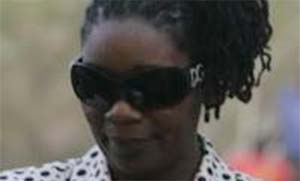Over 8 000 health posts frozen

the public sector after Treasury froze the vacant posts, a Parliamentary Portfolio Committee heard yesterday.
Health Service Board executive chairperson Dr Lovemore Mbengeranwa called for the exemption on frozen posts in the health sector that had affected service provision.
He said the available staff complement cannot match the work load and new clinics, particularly in resettlement areas.
Dr Mbengeranwa was giving oral evidence before a Parliamentary Portfolio Committee on Health and Child Welfare, chaired by Murehwa North MP Cde David Parirenyatwa (Zanu-PF).
“This had a negative impact on the operation of our health institutions. As at December 31 2010, the approved establishment for the Ministry of Health and Child Welfare was 35 537 with 8 282 vacancies,” he said.
RELATED
The Health Services Board, Dr Mbengeranwa said, requested Treasury to fill 5 235 posts and absorb graduates from various training institutions run by the Ministry.
The request was, however, turned down.
“Treasury in its response in a letter dated May 24 2011, regarding the establishments for the Ministry of Health and Child Welfare, mission and rural district council hospitals and Health Services Board, indicated that the 2011 budget did not accommodate the creation of additional posts.
“We went to Treasury to tell them that they are erring with the freeze to the extent that we are failing to discharge our legal obligation of employing those we have bonded.
“Because of the freeze, newly graduating nursing staff are finding it difficult to get employment.”
Kwekwe Central MP, Mr Blessing Chebundo (MDC-T) asked why they were continuing to hold on to the certificates of these newly qualified bonded graduates.
It was also noted that at least 8 000 nurses cannot be employed owing to the freeze.
Dr Mbengeranwa said they were still holding discussions with Treasury to find a solution to the problem.
Mr Chebundo had also asked why the Government continued to rely on expatriate doctors instead of capacitating local personnel.
“The expatriate doctors programme we get from Cuba and the Democratic Republic of Congo is virtually a gift. We are not paying anything as it is a government to government arrangement,” he said.
Dr Mbengeranwa also said there was need to improve the conditions of service for personnel in the health sector.
Another Health Service Board official, Dr Phineas Makurira said it cost at least US$50 000 per year to train a doctor, an amount that would translate to US$250 000 in five years.
He said it made economic sense to pay these doctors well considering the investment Government put in training them.
“I was in Botswana recently and there was an industrial action. That country’s Minister of Health asked me how much we are paying our doctors and I said US$300 to US$400 but in Botswana junior doctors earn the equivalent of US$3 000, with a specialist earning the equivalent of US$7 000,” he said.
Dr Mbengeranwa said retention and management of staff remained a major challenge.
He said there was need to provide social support like car loans, housing loans and guarantees of staff.
“The HSB, in the interest of good administration of services, permitted members whose pensionable age was 60 to be raised to 65 years and to continue to serve beyond the age of 65 provided they show medical evidence that they were in good health. Annual medical certificates were required,” Dr Mbengeranwa said.
The policy to raise retirement age to 65 had gone a long way in stabilising the workforce that has been affected by brain drain, he said.
Full salaries are now being paid for those staff members on manpower development programmes, said Dr Mbengeranwa.







Comments